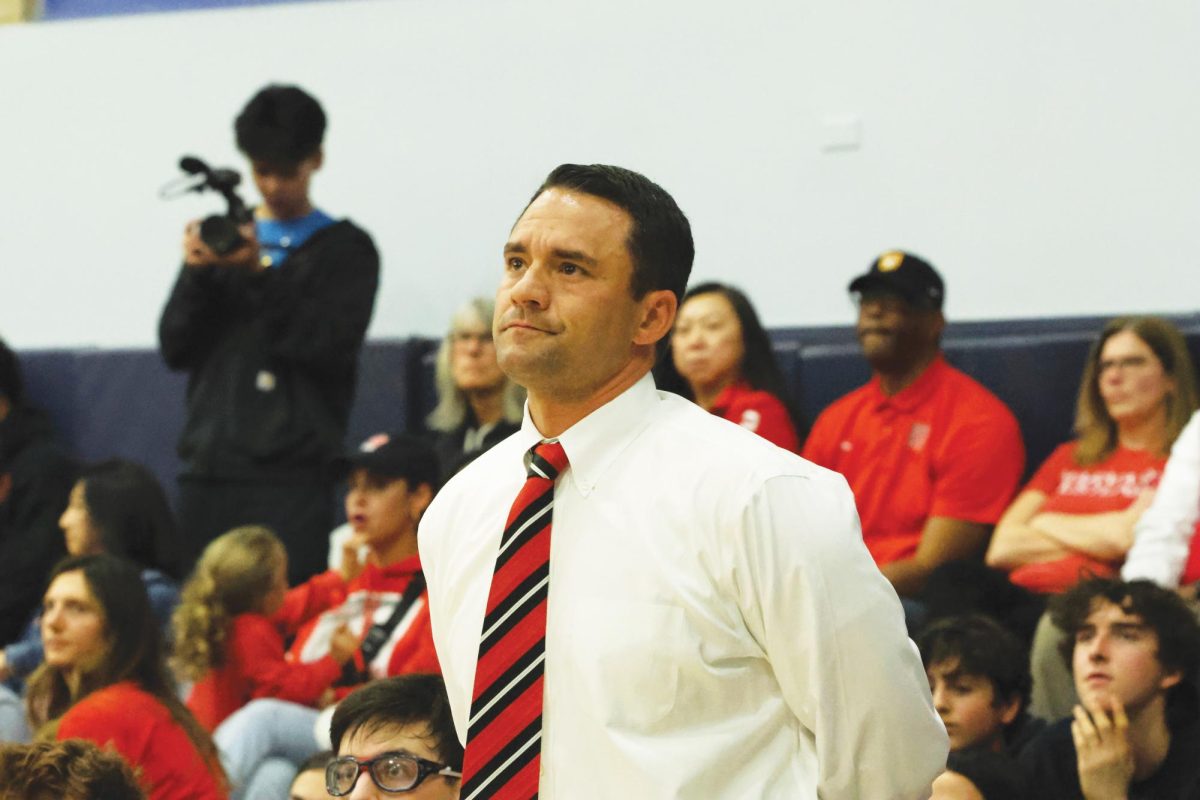By Megan Kawasaki
Stepping out of Penticton Regional Airport in Canada, Upper School Foreign Language Department Chair Paul Chenier was greeted by his older brother Peter, a fruit farmer, driving up the road in an enormous flatbed truck.
“He picked me up from the airport and said, ‘We have to go to this farm right away before we head home,’” Chanier said.
Chenier was not surprised, since his entire family has farmed for generations in Canada.
After a short drive, Chenier was standing amidst acres of strawberry plants, his Calvin Klein shoes stained with dark mud.
Only 10 minutes after landing, Chenier was already back in the throes of his bucolic childhood in his tiny native town of Naramata, a small community in rural British Columbia, nearly surrounded by the broad Okanagan Lake.
“The village had about 1,200 people,” he said. “The core of the village was very, very tiny.”
In such an isolated area, Chenier’s childhood was far from that of the average city kid. Chenier recalls summer days of buying candy from the local penny shop and lazing on beaches for hours.
“It was very peaceful,” he said. “It was like the Garden of Eden. When you were hungry, you just walked among the trees and ate all of the fruit. Nobody cared.”
Throughout this idyllic childhood of fun and freedom, though, Chenier was already working various odd jobs on family farms.
“I was employed very quickly,” he said. “In seventh grade, my mom took me to my uncle’s farm and gave me a bucket and told me to go pick some cherries. After that, it really took off.”
From casual fruit picking as a youngster to part-time work during his high school years, Chenier gradually learned more about agriculture by irrigating farms and tending to young plants in nurseries. By the time Chenier was a college student, he was grafting trees full-time in nurseries, putting different varieties together to form ideal breeds.
“It wasn’t hard to get employment, and I liked it a lot because it taught me a pretty good work ethic,” he said. “You’re working alongside adults, doing adult things, and as a kid, you loved it because there was lots of responsibility.”
Chenier studied at the University of Victoria in British Columbia, Canada,.He paid for his tuition using the money he had accumulated over years of farming. At the University of Victoria, he discovered a fondness for classics because its literature often deals with the contrast between country and city living.
“I was surprised when I would read poetry like Vergil’s,” Chenier said. “We read the ‘Georgics’ and the ‘Eclogues,’ and I was stunned how in touch with farming they were and how profound their thoughts were on the lifestyle that the countryside offered.”
That connection spurred his studies, and eventually he spent more time studying independently in the university’s libraries than going home to farm.
Once he finished college and received his first graduate degree, Chenier went south to California for a second graduate degree at Stanford University, where he continued to research Greek and Latin literature. Afterwards, he returned to Canada to teach classics, but his fondness for California and an open teaching position at Harvard-Westlake convinced him to move to Los Angeles.
“It made a lot of sense to come down and do it,” he said. “The job is tailor-made for my interests.”
Chenier considered the major move to be an eye-opening experience, for the ease of living in rural Canada was lost. One of the major drawbacks was he did not know how to drive, a necessity in Los Angeles but certainly not in Naramata. Only in 2004 did he receive his driver’s license.
“I’ll never be super comfortable driving because I started so late,” he said. “My first day driving alone was scary. There’s no one in the car to grab the steering wheel and jam on the brake as you head onto the sidewalk.”
Sometimes, however, Chenier said he feels a bit disconnected from Canada.
“I feel a bit impractical, a bit useless, when I go home now because they all know so much about the environment around them,” he said.
He said he would not want to be anything but a classics teacher, though. The hard work and lifestyle of a fruit farmer seemed less attractive to him as years passed.
“In college, it became clear than I would rather work 12 hours with a book than with a shovel,” he said. “Latin books don’t give me calluses.”
Chenier imbues a vibrant spirit in his classes, which he attests to his love of sharing his intellectual passions with those whom he teaches, and he has aspirations to keep doing so for the rest of his life.
“If you could spend the rest of your days reading Vergil, I honestly think that’s a life very well spent,” he said. “I sincerely mean that. I find that text just endlessly interesting. There’s not the slightest chance I’ll ever get bored.”





































